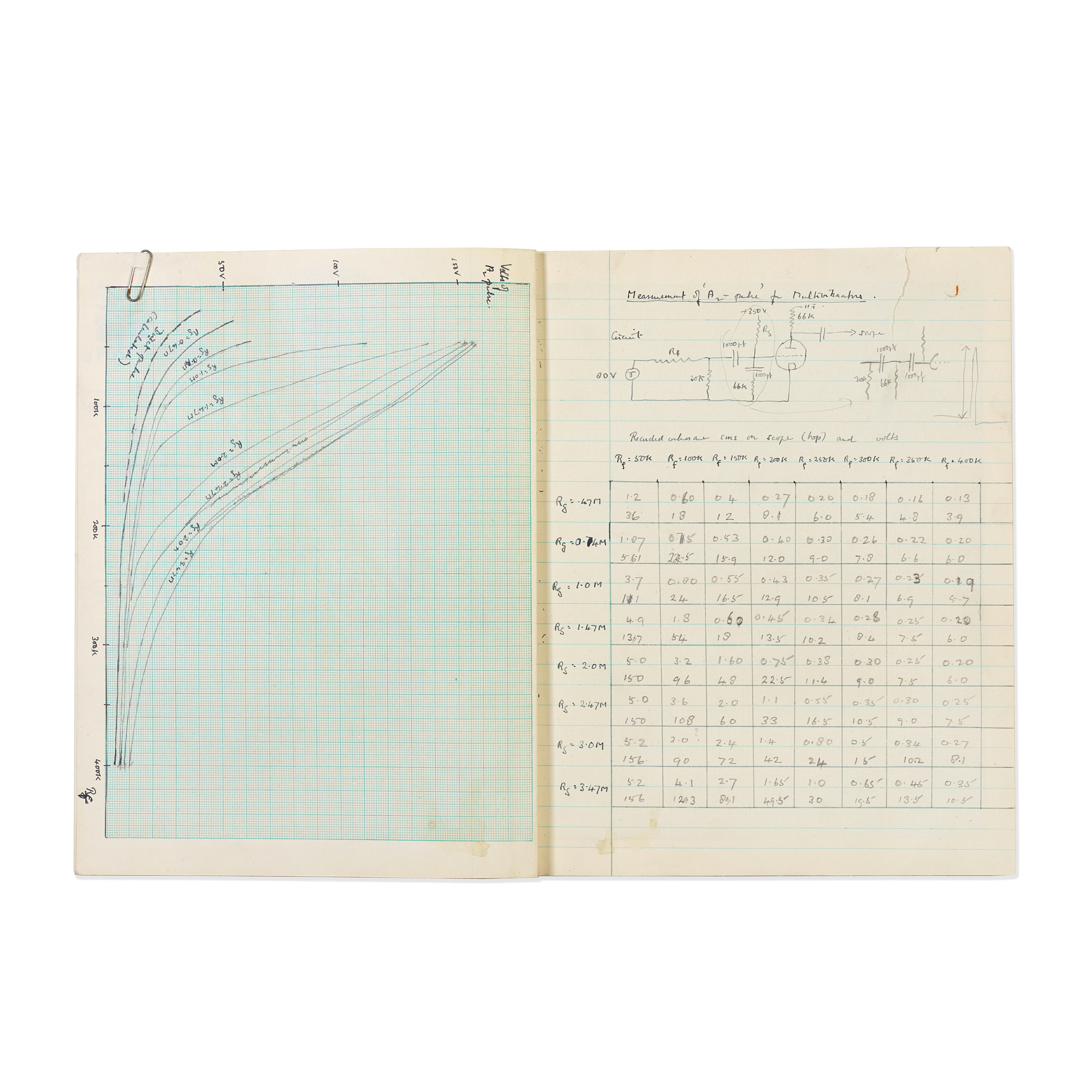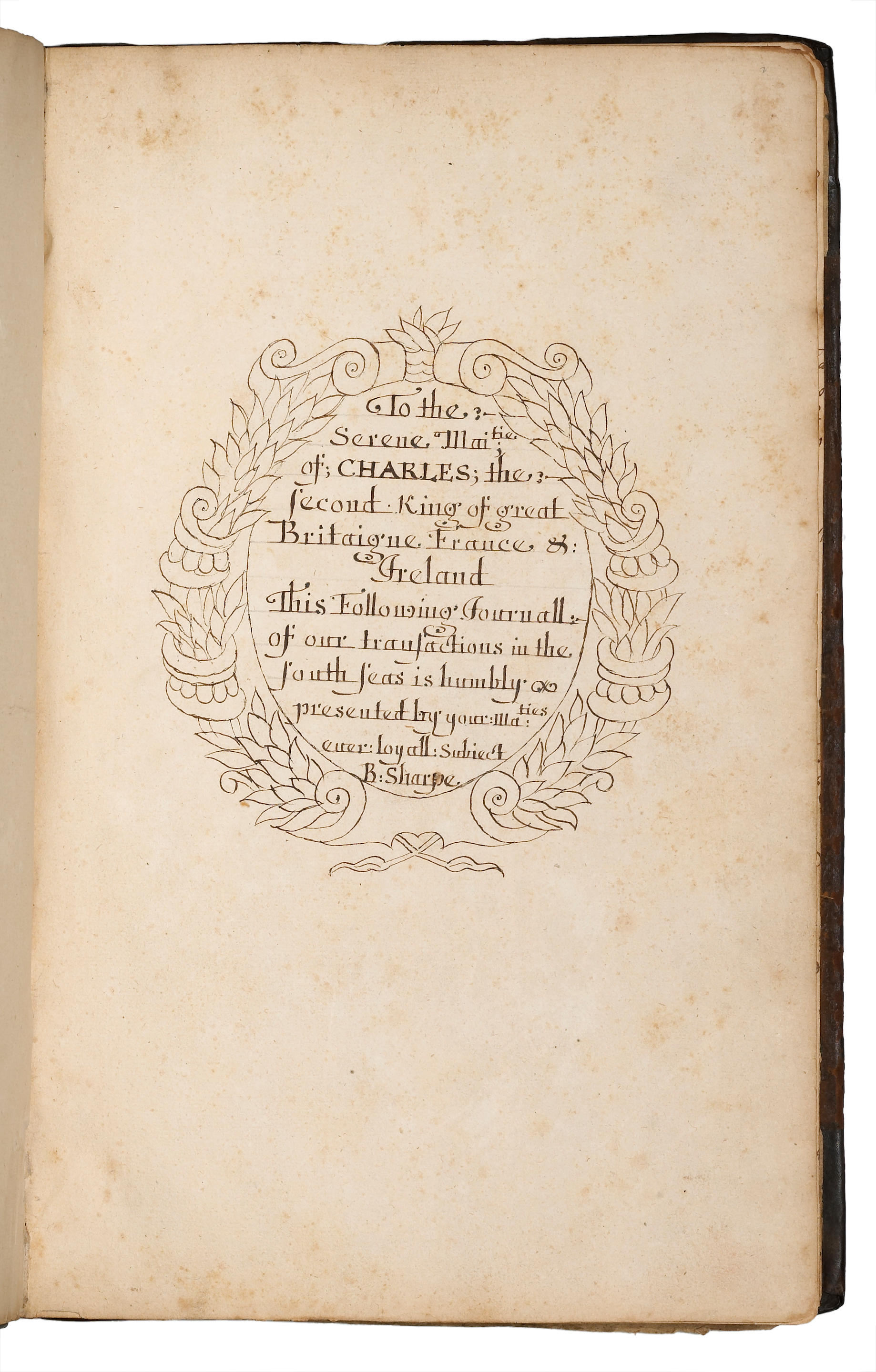TRANSCRIPT POSSIBLY IN THE HAND OF JULIA LEIGH HUNT OF HUNT'S LONG POEM 'VELLUTI TO HIS REVILERS' WITH AUTOGRAPH NOTES AND REVISIONS AND AN AUTOGRAPH LETTER SIGNED BY HUNT AT THE END, comprising three-page prose advertisement, 380 lines of verse, with sixteen lines of footnotes, two single word autograph revisions and five-word autograph note by Hunt, and a seven-line autograph letter signed by Hunt ('Leigh Hunt') at the foot of the last page, addressed to [John] Hunter, and a note in pencil by Edmund Blunden written at the head of the first page and signed with initials, 16 pages, large folio, tear in the last leaf (easily repaired), sewn into contemporary dark blue shiny wrappers, tears, wear and fraying to wrappers, formerly folded into four horizontally, watermark date 1846, dated at the end from Kensington, 1848 Velluti, the lorn heart, the sexless voice, To those who can insult a fate without a choice. You wrong your manhood, critics, and degrade Your just disdain of an inhuman trade, When in your zeal of what a man should be, You wreak your shuddering epithets on me... In his note Blunden states that the transcript is probably in the hand of Julia Leigh Hunt and that the poem had appeared in The Examiner and was reprinted by him in The Examiner Examined. Leigh Hunt, in his letter at the end to Hunter, explains that he has not read the verses again since they were first published and feels a little trepidation in case Hunter did not consider them good enough and expresses himself as having been 'agreeably disappointed', considering them 'the best (in rhyme) that I ever wrote - if I am old enough to be allowed to talk of my "best"...' Giovanni Velluti (1780-1861) was an Italian castrato, considered the 'last of the great castrati.' The crowds and critics in London reacted negatively to his initial performances as he was the first castrato to appear in London for a quarter of a century. John Hunter (1801-1889) of Craigcrook, the son of the Professor of Hebrew at St. Andrew's, who attended Edinburgh University in about 1816 and became a Writer to the Signet in 1826 and auditor of the Sessions, was a close friend of Hunt and Thomas Carlyle He was a shrewd Edinburgh lawyer, of the firm of Lockhart Hunter and Whitehead, a businessman and also a sound scholar with wide-ranging interests. For his diaries and a series of letters by Hunt to him in which there is a passing reference to this manuscript ('...The "Velluti", as you naturally conclude, I never thought of sending...', see Roy Davids Ltd catalogue II.) 'Lorn' is Middle English for bereft or forlorn. Julia was Hunt's second daughter and eighth child. PROVENANCE: Leigh Hunt's friend John Hunter and by descent.
TRANSCRIPT POSSIBLY IN THE HAND OF JULIA LEIGH HUNT OF HUNT'S LONG POEM 'VELLUTI TO HIS REVILERS' WITH AUTOGRAPH NOTES AND REVISIONS AND AN AUTOGRAPH LETTER SIGNED BY HUNT AT THE END, comprising three-page prose advertisement, 380 lines of verse, with sixteen lines of footnotes, two single word autograph revisions and five-word autograph note by Hunt, and a seven-line autograph letter signed by Hunt ('Leigh Hunt') at the foot of the last page, addressed to [John] Hunter, and a note in pencil by Edmund Blunden written at the head of the first page and signed with initials, 16 pages, large folio, tear in the last leaf (easily repaired), sewn into contemporary dark blue shiny wrappers, tears, wear and fraying to wrappers, formerly folded into four horizontally, watermark date 1846, dated at the end from Kensington, 1848 Velluti, the lorn heart, the sexless voice, To those who can insult a fate without a choice. You wrong your manhood, critics, and degrade Your just disdain of an inhuman trade, When in your zeal of what a man should be, You wreak your shuddering epithets on me... In his note Blunden states that the transcript is probably in the hand of Julia Leigh Hunt and that the poem had appeared in The Examiner and was reprinted by him in The Examiner Examined. Leigh Hunt, in his letter at the end to Hunter, explains that he has not read the verses again since they were first published and feels a little trepidation in case Hunter did not consider them good enough and expresses himself as having been 'agreeably disappointed', considering them 'the best (in rhyme) that I ever wrote - if I am old enough to be allowed to talk of my "best"...' Giovanni Velluti (1780-1861) was an Italian castrato, considered the 'last of the great castrati.' The crowds and critics in London reacted negatively to his initial performances as he was the first castrato to appear in London for a quarter of a century. John Hunter (1801-1889) of Craigcrook, the son of the Professor of Hebrew at St. Andrew's, who attended Edinburgh University in about 1816 and became a Writer to the Signet in 1826 and auditor of the Sessions, was a close friend of Hunt and Thomas Carlyle He was a shrewd Edinburgh lawyer, of the firm of Lockhart Hunter and Whitehead, a businessman and also a sound scholar with wide-ranging interests. For his diaries and a series of letters by Hunt to him in which there is a passing reference to this manuscript ('...The "Velluti", as you naturally conclude, I never thought of sending...', see Roy Davids Ltd catalogue II.) 'Lorn' is Middle English for bereft or forlorn. Julia was Hunt's second daughter and eighth child. PROVENANCE: Leigh Hunt's friend John Hunter and by descent.






.jpg)







Testen Sie LotSearch und seine Premium-Features 7 Tage - ohne Kosten!
Lassen Sie sich automatisch über neue Objekte in kommenden Auktionen benachrichtigen.
Suchauftrag anlegen